English version at the end
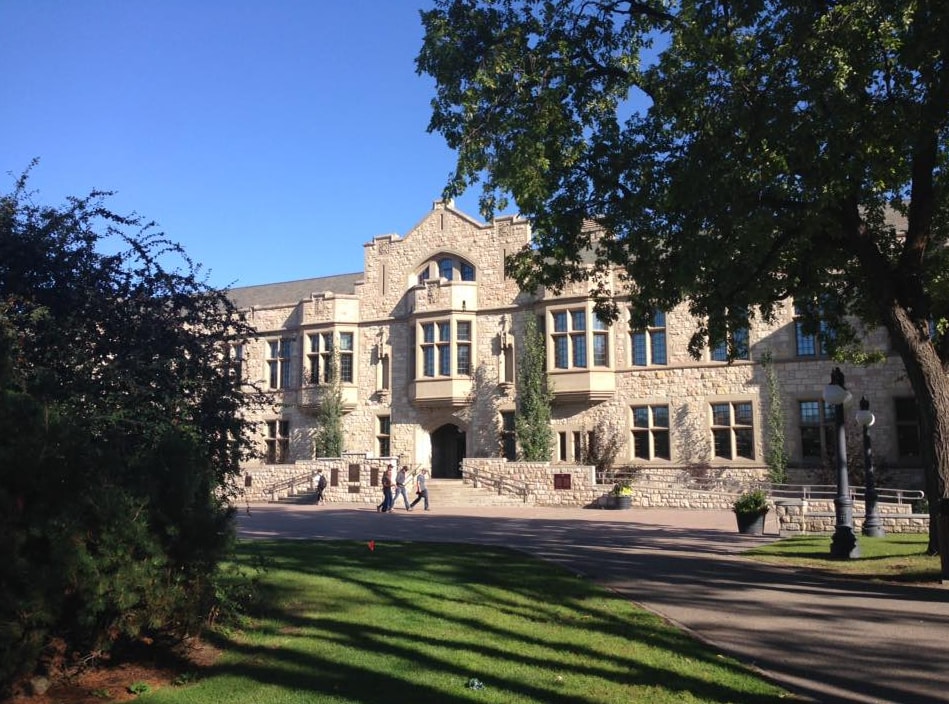
Iniciaba este intercambio como un caso nuevo que inclusive en la embajada no entendían que visa darme, primero tenía la participación en el WEEC (como ya lo explique anteriormente en otro post), segundo como estudiante de investigación visitante en el Instituto de Investigación en Educación para la Sustentabilidad (The Sustainability Education Research Institute-SERI), y tercero como estudiante en el centro de idiomas (Language Centre). Este intercambio se dió como resultado de una escuela de verano realizada en el 2016 en la Universidad de Cambridge, en donde conocí a la profesora Marcia Mckenzie quien trabaja cuestiones de educación ambiental crítica y política en temas educativos y ambientales. De ahí que surgió mi interes en participar de su grupo de investigación, en este sentido, les explico que mi visita fue en el SERI el cual es un centro de investigación dentro de la Facultad de Educación de la Universidad de Saskatchewan. Por otro lado, por sugestión de la profesora debía mejorar mi nivel de ingles, claramente, sobre todo despues de estar aproximadamente 2 años y medio entre portugues y el español. Así que decidí inscribirme en el centro de idiomas de la universidad.

Y esta experiencia fue un intercambio realmente cultural! En su mayoría, tanto en el SERI como en el Language Centre eran extranjeros, dándome otra experiencia de vida. Porque aquí en RÍo de Janeiro, en su mayoría mis compañeros de estudio e investigación son brasileños, con su vida ya estable, con familia, amigos de toda una vida. En cambio allí, todos estábamos solos, generando otro tipo de relación más fraternal. Viví con una familia canadiense maravillosa, quienes me hicieron sentir confortable y siempre estuvieron ahí para mí, así que tengo darles las gracias a Amanda, Landon y Bela por ello. Y que decir de mis compañeros tanto del SERI como del Langue Centre, personas maravillosas de todas las
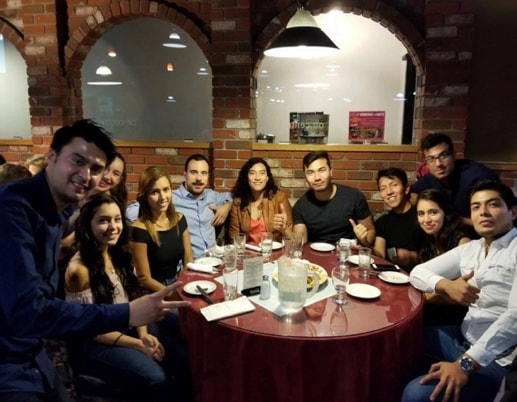 partes del mundo, entre ellas Angeles y María (México), Paola y Andres (Ecuador), Ingrid (Brasil), Lenin (India), Lucas y Andrea (Italia), Zafer fueron las personas que siempre estuvieron conmigo y fueron como mi familia en Canada, así que gracias por tantos buenos momentos que tuvimos juntos. Y muchas personas más con quien aprendí de su cultura Pako, Hinata, entre otras, personas de Nigeria, Estados Unidos China, Japon, Pakistan, Bangladesh, Rusia, Corea, y muchos otros lugares.
partes del mundo, entre ellas Angeles y María (México), Paola y Andres (Ecuador), Ingrid (Brasil), Lenin (India), Lucas y Andrea (Italia), Zafer fueron las personas que siempre estuvieron conmigo y fueron como mi familia en Canada, así que gracias por tantos buenos momentos que tuvimos juntos. Y muchas personas más con quien aprendí de su cultura Pako, Hinata, entre otras, personas de Nigeria, Estados Unidos China, Japon, Pakistan, Bangladesh, Rusia, Corea, y muchos otros lugares.
En el SERI, realice un trabajo independiente y objetivo, claramente siempre direccionada por mi supervisora, a quien le agradezco la oportunidad de recibirme y orientarme. Educacion ambiental, sustentabilidad, relaciones entre política y educación ambiental, relaciones entre investigadores y formuladores de políticas, análisis de discurso, metodologías; eran parte de debates y discusiones. Lo que se convirtió en un artículo titulado “Analysis of National Policy of Environmental Education of Colombia: A discursive Approach to identifying relations between researchers and policy makers”, el cual está actualmente sometido en Environmental Education Research Journal.
Por otro lado, seminarios y discusiones en grupo fueron parte de mis actividades en el SERI, por lo que tuve la oportunidad de participar de las conferencias organizadas por el SERI del profesor Alan Reid de la Universidad de Monash títuladas: “Better Teaching, Better Learning: The Need for Critical Conversations
 and Agreeing Priorities” y “Environmental and Sustainability Education Scholarship: Knowing and Risking What Counts”. Permitiendome conocer los avances a nivel de trabajo universitario como un colectivo, tecnologico, entre otros de la Universidad de Monash. Por otro lado, tuve la oportunidad de discutir mi proyecto de investigación y recibir algunas sugerencias literarias.
and Agreeing Priorities” y “Environmental and Sustainability Education Scholarship: Knowing and Risking What Counts”. Permitiendome conocer los avances a nivel de trabajo universitario como un colectivo, tecnologico, entre otros de la Universidad de Monash. Por otro lado, tuve la oportunidad de discutir mi proyecto de investigación y recibir algunas sugerencias literarias.
En el anterior post que realice en el blog, finalice afirmando que había identificado mucho interes por resaltar el reconocimiento indigena en Canadá, y fue en el curso de inglés que descubrí la razón de este tipo de trabajos. Y es que los países desarrollados también han tenido sus fallas en los sistemas políticos, económicos y educativos. Solamente, que no es tan público, como los defectos de nuestros paises latinoamericanos, en cambio se hace otro tratamiento de la información.
Un poco de historia…
-
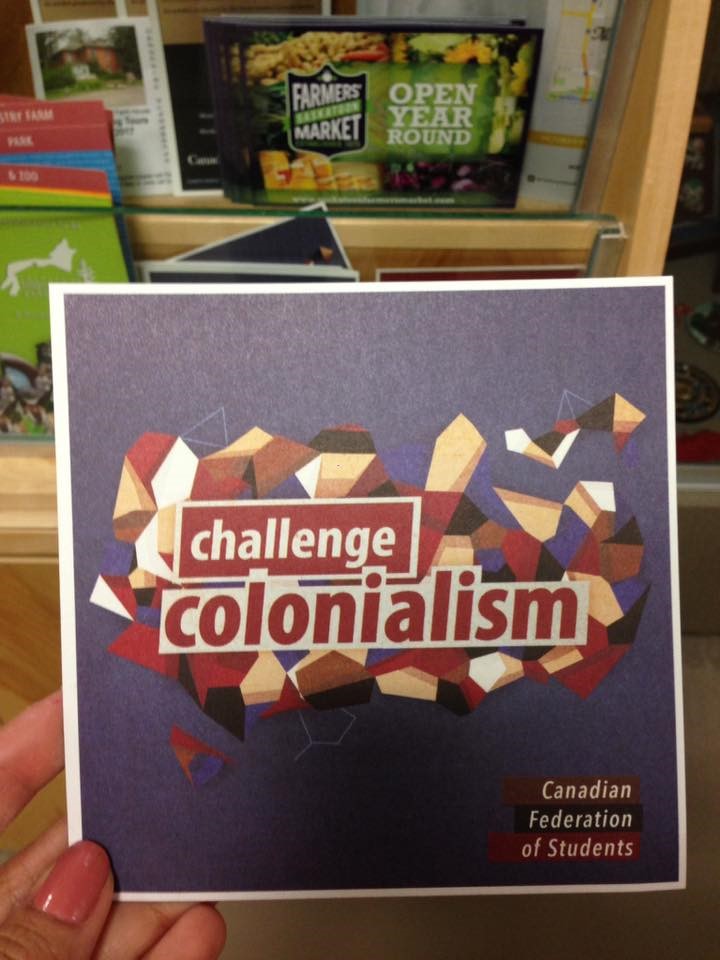
Residential schools
Canadá tuvo escuelas residenciales abiertas en 1796 y cerradas hasta 1996 para niños nativos americanos, para “reeducarlos” con una cultura occidental, es decir, ellos debían adoptar la religión cristiana y hablar inglés o francés, lo cual fue establecido por parte del gobierno canadiense británico canadiense. En muchos casos, tomaron los niños por la fuerza de sus padres, y los introdujeron en escuelas donde cada niño nativo americano debía olvidar sus creencias, y todo aspecto cultural. Sin embargo, sólo en 2008 el gobierno realiza una disculpa pública. Pero Por qué?.
Pues a través de los años descubrieron, que los estudiantes vivían en malas condiciones, tanto de abuso físico como emocional, por ejemplo abuso sexual, experimentos, que en algunos casos llevo a la muerte. Tanto así, que hablan de los sobrevivientes de las escuelas residenciales. Fueron tantas las atrocidades, que dicen que los campos de concentración Nazi, fueron basados en las escuelas residenciales.
- Segregación social.
Pues si, a pesar que Canadá es un país amigable, y que fue una de las primeras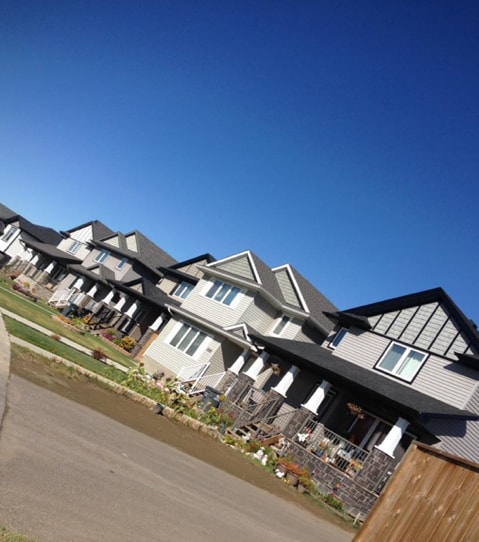 características que percibí al llegar aquí, con el paso de los días, me di cuenta que no es con todo el mundo. Como resultado de las escuelas residenciales, muchos nativos americanos viven en condiciones de pobreza, por tanto, viven bajo el consumo de drogas, y cometiendo delitos. Saskatoon es una ciudad pequeña, sin embargo, pude percibir que en su mayoría los indígenas viven después del centro, y en un tipo de edificios conformados por apartamentos, (los otros barrios son casas), este tipo de edificios son considerados de las personas “pobres”, además que la zona donde quedan ubicados, están distinguidas como zonas peligrosas, elemento que explican en la introducción a todos los estudiantes extranjeros que llegan a la ciudad. Y sin hablar de Vancouver, donde percibí muy pocos indígenas, sino en su mayoría inmigrantes asiáticos, y en la Universidad de Saskatchewan en una pequeña proporción.
características que percibí al llegar aquí, con el paso de los días, me di cuenta que no es con todo el mundo. Como resultado de las escuelas residenciales, muchos nativos americanos viven en condiciones de pobreza, por tanto, viven bajo el consumo de drogas, y cometiendo delitos. Saskatoon es una ciudad pequeña, sin embargo, pude percibir que en su mayoría los indígenas viven después del centro, y en un tipo de edificios conformados por apartamentos, (los otros barrios son casas), este tipo de edificios son considerados de las personas “pobres”, además que la zona donde quedan ubicados, están distinguidas como zonas peligrosas, elemento que explican en la introducción a todos los estudiantes extranjeros que llegan a la ciudad. Y sin hablar de Vancouver, donde percibí muy pocos indígenas, sino en su mayoría inmigrantes asiáticos, y en la Universidad de Saskatchewan en una pequeña proporción.
Y sin capacidad de hablar de racismo hacia otro tipo de razas como la latina, árabes u otros, o que algunas personas (según ellos) consideraban como sospechoso de terrorismo, porque no lo viví. Todo lo escrito aquí, es con base a la experiencia, a historias de amigos y profesores que tuve durante mi estancia allí. Porque a nivel personal no viví ningún tipo de racismo, siempre fueron abiertos conmigo, de hecho interactúe con todo tipo de personas e incluso algunos nativos durante el recorrido del bus, (en un caso, una chica me dice que vivía triste porque ella sentía el preconcepto que tenían de ella), y por tanto me parecieron los canadienses personas super amables, alegres, abiertos, muy diferentes a otros lugares que ya visite, porque la diferencia de amabilidad la percibi desde el avión.
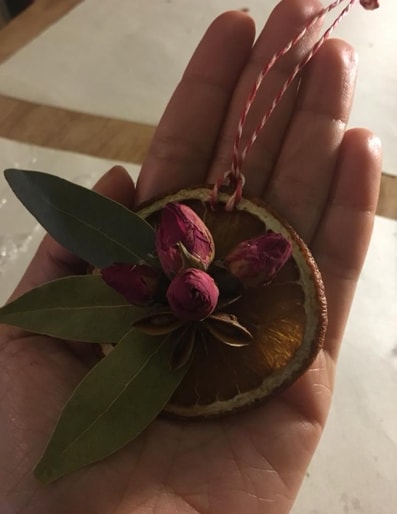 Concluyendo…
Concluyendo…
Educación ambiental es en todo momento! aprendemos desde el diálogo con otras culturas, en el debate, en el reconocimiento histórico y su influencia en eventos del presente. En la lucha contra el colonialismo, la reivindicación de las culturas, en el debate político, en la búsqueda de una justicia socioambiental.
A Cultural Exchange a look of a Doctorate Student: Experiences and Discoveries as a Visiting Research Student.
When I started the cultural exchange, it was such an unusual case that even the Brazilian Embassy did not know what kind of visa to give me. To begin with, I was to participate in the WEEC (as I explained in an earlier post). Secondly, I was a visiting research student in the Sustainability Education Research Institute-SERI and thirdly I was to be a student in the language center. This exchange was the result of a summer school held in 2016 at the University of Cambridge, where I had met Professor Marcia Mckenzie, who works in critical environmental education and politics in educational and environmental issues. This was why I was so interested in participating in their research group. My visit was in the SERI which is a research center within the Faculty of Education of the University of Saskatchewan. However, since Prof. Mckenzie suggested I improve my English, after spending approximately 2 and a half years with Portuguese and Spanish speaking people, I decided to enroll in the University´s language center.
And this experience was a real cultural exchange! For the most part, most of students in both the SERI and the Language Center were foreigners, giving me another life experience. Here in Rio de Janeiro, most of my study and research colleagues are Brazilian and had stable lives with family and long-time friends. On the other hand, there, we were all alone, which developed another type of bond; it was easier to form a close relationship. I lived with a wonderful Canadian family, who made me feel comfortable and they were always there for me, so I have to thank Amanda, Landon, and Bela for it. And what can I say about my colleagues from both the SERI and the Langue Center! I met wonderful people from all over the world: Angeles and María (Mexico), Paola and Andres (Ecuador), Ingrid (Brazil), Lenin (India), Lucas and Andrea (Italy), Zafer (Syrian). They were always with me and were like my second family in Canada. So, thank you for so many good times we had together. And many more people from whom I learned about their Pako and Hinata culture among others: people from Nigeria, the United States, China, Japan, Pakistan, Bangladesh, Russia, Korea, and many other places.
In the SERI, I performed an independent and objective work, clearly always directed by my supervisor, to whom I thank you for giving me this opportunity; receiving and guiding me. Environmental education, sustainability, the relationship between politics and environmental education, the relationship between researchers and policymakers, discourse analysis and methodologies. These subjects were part of debates and discussions and became an article entitled “Analysis of National Policy of Environmental Education of Colombia: A Discursive Approach To Identifying Relations Between Researchers And Policymakers”, which is currently submitted in the Environmental Education Research Journal.
In addition, seminars and group discussions were part of my SERI activities. So I had the opportunity to participate in the conferences organized by the SERI of Professor Alan Reid of the University of Monash entitled: “Better Teaching, Better Learning: The Need for Critical Conversations and Agreeing Priorities” and “Environmental and Sustainability Education Scholarship: Knowing and Risking What Counts” allowing me to understand the level of advancement at the University of Monash with regard the personnel, technology, and several other aspects. On top of all this, I had the opportunity to discuss my research project and receive valuable literary suggestions.
In my previous post I made on this blog, I ended up saying that I had identified a lot of interest in highlighting the indigenous recognition in Canada, and it was in the English course that I discovered the reason for this type of work. The reason is that that developed countries have also had their failures in political, economic and educational systems. The difference is that it is not as well-known as the defects of our Latin American countries; the issue is managed differently.
A little history…
- Residential schools
Canada had residential schools opened in 1796 and closed until 1996 for Native American children, to “re-educate” them with a Western culture, that is, they had to adopt the Christian religion and speak English or French, which was established by the British Canadian government. In many cases, they took children from their parents by force and put them in schools where every Native American child had to forget their beliefs and cultural identity. However, it was only in 2008 that the government made a public apology. But why?
For over the years they discovered that students lived in poor conditions, both physical and emotional abuse, for example, sexual abuse, experiments, which in some cases led to death. So much so, that they talk about the survivors of residential schools. There were so many atrocities, which say that the Nazi concentration camps were based on residential schools.
- Social segregation.
Canada is a friendly country and this was one of the first characteristics that I perceived when I arrived here. However, with each passing day, I realized that it is not the case with everyone. Social segregation does exist. As a result of residential schools, many Native Americans live in poverty and drug abuse and crime is not uncommon. Saskatoon is a small city, however, I could perceive that most of the indigenous people live outside the center, and in apartment-type buildings (the other neighborhoods are houses), the type of buildings is considered as “poor”. In addition to this, the areas where they are located are distinguished as dangerous areas. It´s something that is included as a warning in the introduction given to all foreign students arriving in the city. In Vancouver too, I noticed very few indigenous people, rather mostly Asian immigrants, and the University of Saskatchewan in a small proportion.
And I can´t speak about racism towards other groups such as Latino, Arab and others, or other groups that certain people consider terrorist threats because I haven´t experienced it myself. Everything written here is based on my experience, the stories from friends and teachers that I had during my stay there. On a personal level, I did not experience any kind of racism. They were always open to me. In fact, I interacted with all kinds of people and even some natives on my bus rides to and from the university. In one case, a girl told me that she was sad because she felt peoples´ stereotypes wherever she went. In my experience, however, right from the moment I stepped off the plane, I found Canadians people super friendly, happy, open and very different from other places I had visited.
To conclude, environmental education is important at all times! We learn through conversation and dialogue with other cultures, through debate, in historical recognition and its influence on current events as much as in the fight against colonialism, the vindication of different cultures and in political debate, and finally, in the search for socio-environmental justice.
English reviewer: Alison Rebello.



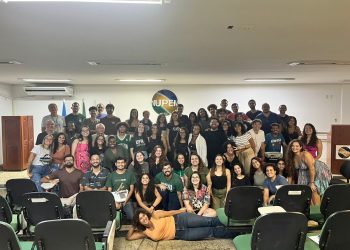
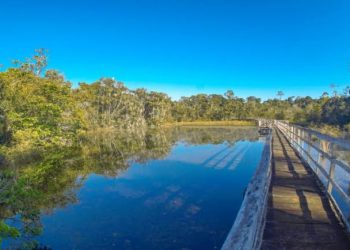
![[Mês da Educação] Um educador que inspira outros educadores](https://limnonews.biologia.ufrj.br/wp-content/uploads/2020/10/img_0140-1-350x250.jpg)

Bela e completa narrativa Angélica, uma experiência enriquecedora, multicultural, multiétnica. Curiosa também por revelar aspectos bastante peculiares da cultura canadense que eu sequer imaginava. À distância são perfeitos, mas como todo povo têm uma história, um caminho por trilhar, onde como sempre, o desafio de seguir da forma mais justa está sempre presente. Seria legal um seminário no laboratório para ampliar a discussão. Que tal?
Parabéns.